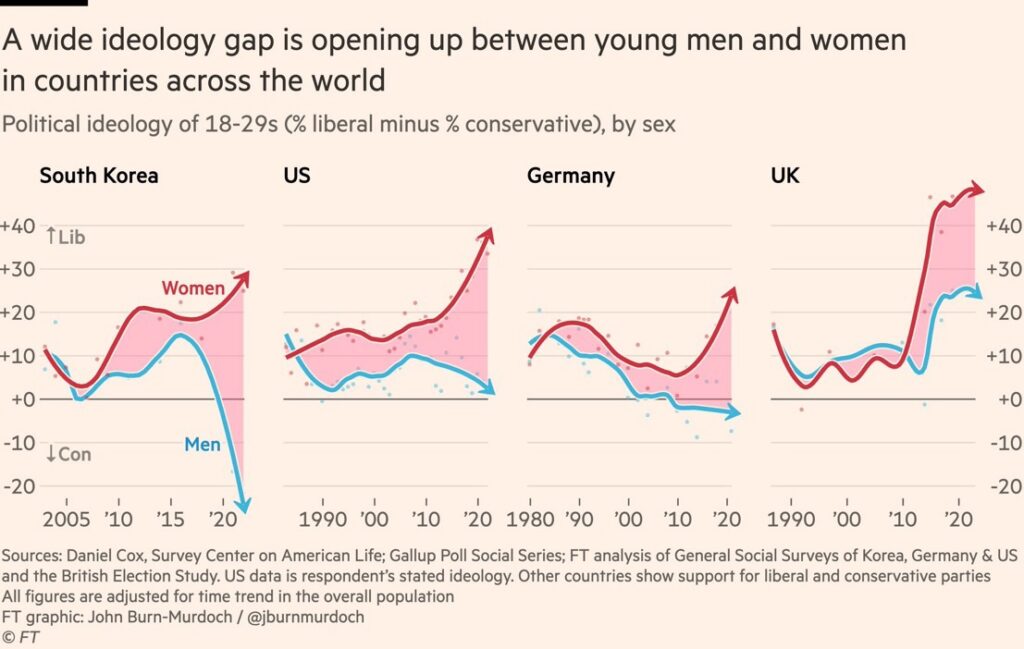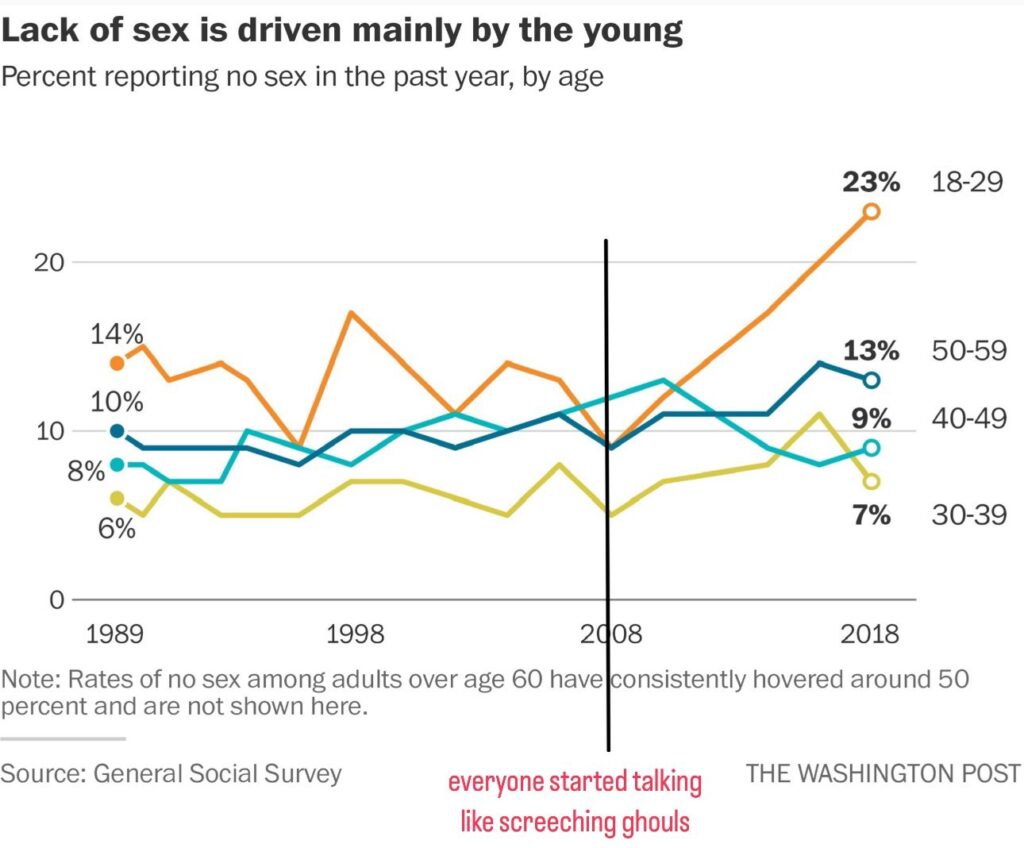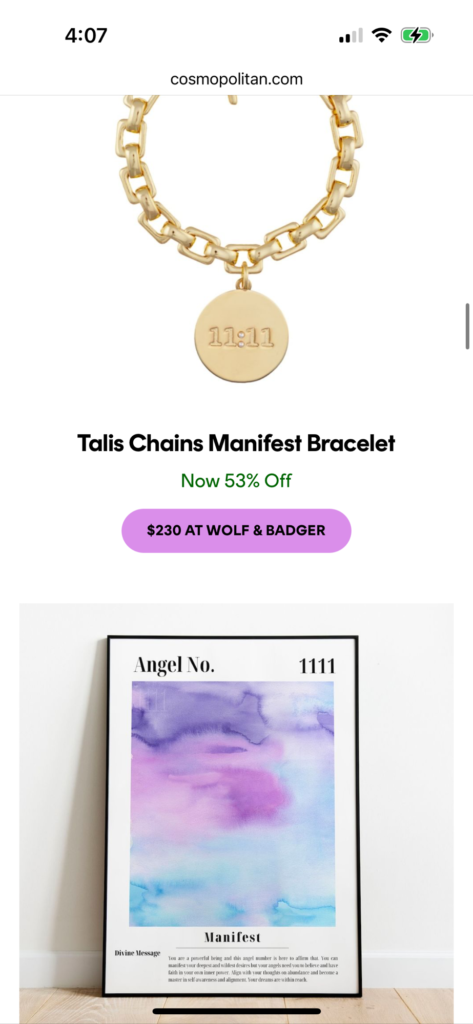A Financial Times journalist published a lengthy thread on Twitter to promote his excellent reporting on significant global phenomena that seems to deserve all our attention. Young men are becoming more conservative than young women who are themselves becoming swiftly more liberal.
In countries on every continent, an ideological gap has opened up between young men and women. Tens of millions of people who occupy the same cities, workplaces, classrooms and even homes no longer see eye-to-eye
John Burn Murdoch “A Gender Divide Widens

In the US, Gallup data shows that after decades where the sexes were each spread roughly equally across liberal and conservative world views, women aged 18 to 30 are now 30 percentage points more liberal than their male contemporaries. That gap took just six years to open up.
John Burn Murdoch “A Gender Divide Widens
There are a million ways to look at this problem, its causes & potential solutions, and the Twitter thread gets into all of them.
But I want to focus on the “screeching ghoul” aspect of the entire mess. The internet is now the public space of society. And men and women are on totally different feeds.
Young people between 18-30 find themselves in gender segregated algorithmically distinct content networks.
Men are cussing with their friends playing first person shooter games, ranting on Reddit, and generally going their own way.
Women are on Instagram and TikTok and are interacting with other women where dating and culture topics dominate.
They are all driven by algorithm towards refinement of their positions, biases and slogans. It self reinforces a viewpoint. Right up till it is all screeching ghouls. My mutual Mike pointed out what happens. No one wants to have a relationship with a screeching ghoul.

As more of us have onboarded to virtual worlds we found ourselves with more of our own people and ideologies. And instead of engaging one one one with another human who capable of empathy we find ourselves starring at algorithmically lost and damned. No wonder we can’t come together.


